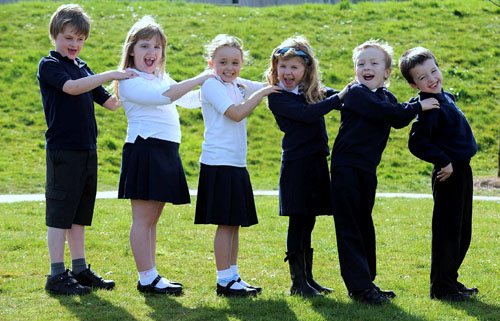CHILDREN with more symmetrical hands are smarter than others, according to a study.
Scots researchers have found that children with balanced physical proportion on their left and right hands were able to react more quickly in mental tests.
This was true even after accounting for age and gender differences.
Researchers say the findings suggest a connection from an early age between bodily symmetry and mental performance.

Previous studies have already revealed a link between bodily symmetry and mental performance in old age, as men with more symmetrical faces are less likely to experience a slow down of brain power in later life.
Health data from 856 children aged 4 -15 years in Edinburgh was used in the new study, carried out by the Universities of Edinburgh and Glasgow. Hand symmetry was recorded using a digital scanner. Reaction times were measured in a computer-based test.
Professor Ian Deary, Director of the Centre for Cognitive Ageing and Cognitive Epidemiology at the University of Edinburgh, who led the research project, said: “The connection between physical symmetry and reaction times could be an important clue to health and well-being over a person’s life course. This finding can shed light on how the mind and the body develop together from childhood to older age.”
Bodily symmetry could be a sign of biological fitness, according to scientists. It has been linked to health and multiple measures of well-being. Previous studies indicate that reaction times are an important indicator of health, and reaction times speed up significantly as children approach adulthood, only to slow down when approaching older age.
Dr David Hope, Centre for Medical Education at the University of Edinburgh, said: “This finding links cognitive ability and health very early in the life course – even before school age physical actions are connected with a person’s body then reflected in mental function.”
The study, which is published in the journal Developmental Psychology, was supported by the University of Edinburgh and the cross-council Lifelong Health and Well-being Initiative.